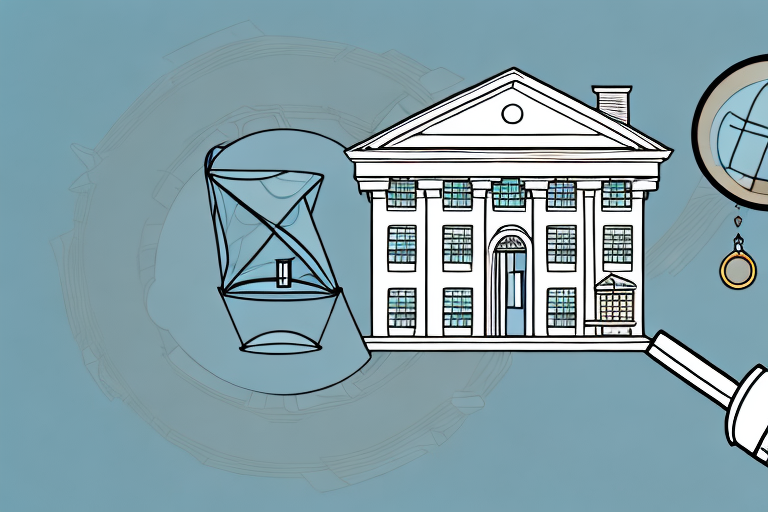In the complex world of business, legal protection is essential for the success and longevity of any enterprise. Commercial law serves as the legal guardian that safeguards businesses from various risks and ensures their smooth operation. Understanding the role of commercial law and its impact on businesses is crucial for entrepreneurs, managers, and aspiring business professionals alike. This article explores the basics of commercial law, its importance in business operations, key areas of protection, navigating legal challenges, the role of legal professionals, and future trends that could shape commercial law.
Understanding the Role of Commercial Law in Business
The Basics of Commercial Law
Commercial law encompasses a wide range of legal principles, regulations, and statutes that govern business transactions and operations. Commercial lawyers Newcastle provides a framework for conducting fair and ethical business practices, protecting the interests of all parties involved.
One fundamental aspect of commercial law is contract law, which governs agreements between businesses, suppliers, partners, and customers. Understanding contractual obligations is crucial for maintaining healthy business relationships and avoiding disputes.
Contracts are not just limited to written agreements; they can also be formed through verbal exchanges or even implied by the actions of the parties involved. For example, when you purchase a product from a store, you enter into an implied contract where you agree to pay for the item and the store agrees to provide it in return.

It is important to note that commercial law is not limited to domestic transactions. In today’s globalized world, businesses often engage in international trade, which introduces additional complexities. International commercial law governs cross-border transactions, addressing issues such as import and export regulations, customs duties, and international dispute resolution mechanisms. Click here to get the importance of commercial law for companies.
The Importance of Commercial Law in Business Operations
Commercial law ensures that businesses operate within legal boundaries, promoting transparency, accountability, and fairness. By complying with the legal framework, businesses can establish trust with stakeholders, including investors, employees, and customers.
Moreover, commercial law provides protection against unfair competition, deceptive trade practices, and intellectual property violations. It sets guidelines for product safety, consumer protection, and advertising regulations, enabling businesses to thrive in a fair marketplace.
For example, commercial law prohibits false advertising, ensuring that businesses do not make misleading claims about their products or services. This protects consumers from being deceived and helps maintain a level playing field for businesses to compete.
Furthermore, commercial law plays a crucial role in resolving business disputes. When conflicts arise, parties can turn to the legal system for resolution. Commercial litigation involves specialized courts and procedures that focus on business-related matters, ensuring that disputes are resolved efficiently and fairly.
In conclusion, commercial law forms the backbone of business operations, providing a legal framework that promotes fairness, transparency, and accountability. By understanding and complying with commercial law, businesses can navigate the complex landscape of transactions, contracts, and regulations, ultimately fostering a thriving and sustainable business environment.
Key Areas of Commercial Law Protecting Your Business
Contract Law and Business Agreements
Contracts are the backbone of business transactions and relationships. Commercial law governs the creation, enforcement, and interpretation of contracts, ensuring that both parties fulfill their obligations. Properly drafted contracts protect businesses from legal disputes, breaches, and unforeseen circumstances.
It is essential for business owners and managers to understand the key elements of contract law, such as offer and acceptance, consideration, and the capacity to enter into contracts. Seeking legal advice when drafting complex agreements is advisable to protect the interests of the business.
When drafting a contract, it is important to consider various factors, such as the jurisdiction in which the contract will be enforced and the potential risks involved. Additionally, including specific clauses that address potential disputes, termination rights, and remedies can provide added protection for your business.

Intellectual Property Rights
Intellectual property (IP) refers to intangible creations of the human intellect, such as inventions, trademarks, copyrights, and trade secrets. Commercial law provides mechanisms to protect and enforce these rights, allowing businesses to capitalize on their innovative ideas and creations.
Registering trademarks and patents, drafting licensing agreements, and enforcing copyrights are essential steps in safeguarding intellectual property. Commercial law ensures that businesses can protect their unique assets from unauthorized use or infringement by competitors.
In today’s digital age, protecting intellectual property has become even more crucial. With the rise of online platforms and global markets, businesses must be vigilant in monitoring and addressing any potential infringement. Implementing robust IP protection strategies, including regular monitoring, cease and desist letters, and, if necessary, litigation, can help safeguard your business’s valuable intellectual property.
Employment and Labor Laws
Employees are a valuable asset for any business, and commercial law provides a framework for fair and lawful employment practices. Employment and labor laws address aspects such as minimum wage requirements, working hours, anti-discrimination laws, and health and safety regulations.
Understanding and complying with employment and labor laws not only protects businesses from legal disputes but also fosters a positive work environment, attracting and retaining skilled employees. Regular updates on changes in labor laws are essential to avoid compliance issues.
Moreover, businesses should also be aware of the importance of creating comprehensive employment contracts and policies that clearly outline the rights and responsibilities of both the employer and the employee. These documents can help mitigate potential disputes and ensure that all parties are aware of their obligations.
Additionally, staying informed about emerging trends and developments in employment law, such as remote work policies and the gig economy, can help businesses adapt and remain compliant in an ever-evolving legal landscape.
Navigating Legal Challenges in Business
Dealing with Legal Disputes
Despite diligent efforts, legal disputes can arise in the course of business operations. Commercial law provides mechanisms for resolving disputes through negotiation, mediation, or litigation. Engaging in alternative dispute resolution methods can save time, costs, and preserve business relationships.
If litigation becomes necessary, businesses should hire qualified commercial lawyers experienced in handling business disputes. These professionals can provide strategic advice, represent the business’s interests in court, and work towards favorable outcomes.
When it comes to legal disputes, it is crucial for businesses to understand the importance of early intervention. By addressing potential conflicts at their onset, businesses can prevent them from escalating into costly and time-consuming legal battles. This proactive approach not only saves resources but also helps to maintain a positive reputation in the business community.
Mitigating Legal Risks in Business
Prevention is better than cure when it comes to legal risks in business. By identifying potential legal risks and implementing appropriate measures, businesses can proactively reduce the likelihood of legal issues.
Risk management strategies may include regular legal audits, compliance programs, appropriate insurance coverage, and clear internal policies and procedures. Seeking advice from commercial lawyers specialized in risk management can help businesses identify potential areas of vulnerability and develop tailored risk mitigation strategies.
Moreover, businesses should also stay updated with the ever-evolving legal landscape. Laws and regulations can change, and failing to keep up with these changes can expose businesses to unforeseen legal risks. By staying informed and seeking legal counsel when needed, businesses can ensure compliance and minimize legal vulnerabilities.

The Role of Legal Professionals in Safeguarding Your Business
When to Consult a Commercial Lawyer
Legal issues can arise at any stage in a business’s lifecycle, from formation to expansion and even during winding up. It is advisable to consult a commercial lawyer when making significant business decisions, entering into complex contracts, or facing legal challenges.
Commercial lawyers can provide guidance on legal compliance, draft and review contracts, handle disputes, and protect the business’s long-term interests. Seeking legal advice early on can save businesses from costly mistakes and legal consequences.
For example, let’s say you are considering expanding your business by entering into a joint venture with another company. This is a complex decision that involves various legal aspects, such as drafting a comprehensive agreement that outlines the rights and responsibilities of each party, addressing potential risks, and ensuring compliance with applicable laws and regulations. Consulting a commercial lawyer with expertise in joint ventures can help you navigate through the intricacies of this process and protect your business’s interests.
Furthermore, legal challenges can arise unexpectedly, and having a trusted commercial lawyer by your side can make a significant difference. Whether it’s a contract dispute with a supplier, an employment issue, or a potential lawsuit from a competitor, a skilled legal professional can help you assess the situation, provide strategic advice, and represent your business’s best interests.
Choosing the Right Legal Professional for Your Business
Not all commercial lawyers are alike, and choosing the right legal professional for your business is crucial. Consider factors such as expertise in commercial law, experience in your industry, reputation, and cost when selecting a legal partner.
Developing a long-term relationship with a trusted commercial lawyer who understands your business’s unique needs can provide ongoing legal support and peace of mind. Regular communication and updates with your legal professional are vital to staying abreast of legal developments affecting your business.
Moreover, a knowledgeable commercial lawyer can offer valuable insights and advice beyond the immediate legal matters. They can help you identify potential risks and opportunities, assist in developing strategies for growth and expansion, and provide guidance on regulatory changes that may impact your business.
For instance, imagine you are a technology startup operating in a highly regulated industry. A commercial lawyer with experience in your sector can help you navigate through the complex web of laws and regulations governing your business, ensuring compliance and minimizing legal risks. They can also advise you on intellectual property protection, data privacy, and other legal considerations specific to your industry.
In conclusion, legal professionals play a vital role in safeguarding businesses by providing expert advice, drafting and reviewing contracts, handling disputes, and staying updated on legal developments. By consulting a commercial lawyer and choosing the right legal partner, businesses can protect their interests, avoid costly mistakes, and navigate the complex legal landscape with confidence.
Future Trends in Commercial Law and Their Impact on Businesses
Technological Advancements and Commercial Law
In an increasingly digital world, technology offers both opportunities and challenges for businesses. Commercial law continues to evolve to address legal issues related to data protection, cybersecurity, e-commerce, and intellectual property in the digital age.
Businesses must stay updated on emerging technologies and their legal implications to adapt and stay compliant. Seeking legal advice specialized in technology law can help businesses navigate legal challenges specific to the digital landscape.
Globalization and International Commercial Law
As businesses expand across borders, international commercial law becomes crucial for navigating cross-border transactions, trade agreements, and resolving disputes between parties from different jurisdictions.
Understanding the legal framework of international commerce, including international trade laws, customs regulations, and intellectual property protection, is essential for businesses engaged in global markets. Engaging international commercial lawyers or legal consultants can provide valuable insights and ensure compliance with international legal standards.
In conclusion, commercial law serves as the legal guardian of businesses, safeguarding their interests and ensuring compliance with legal obligations. Understanding the role of commercial law, key areas of protection, and the importance of legal professionals is vital for entrepreneurs and business professionals. By navigating legal challenges, mitigating risks, and staying informed about future trends, businesses can thrive in an ever-evolving legal landscape. Embracing commercial law as a cornerstone of business operations can contribute to long-term success and sustainability.



